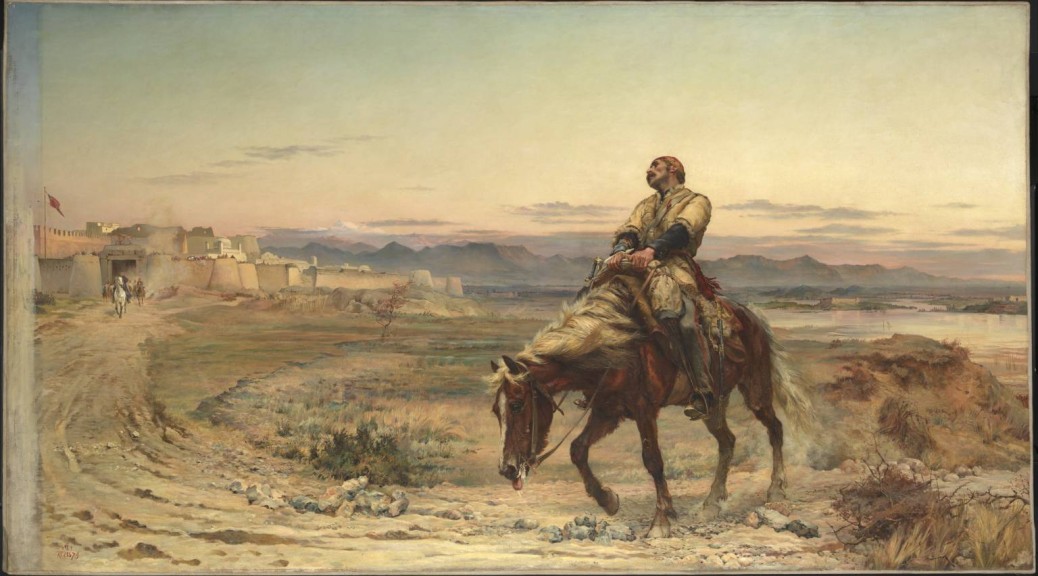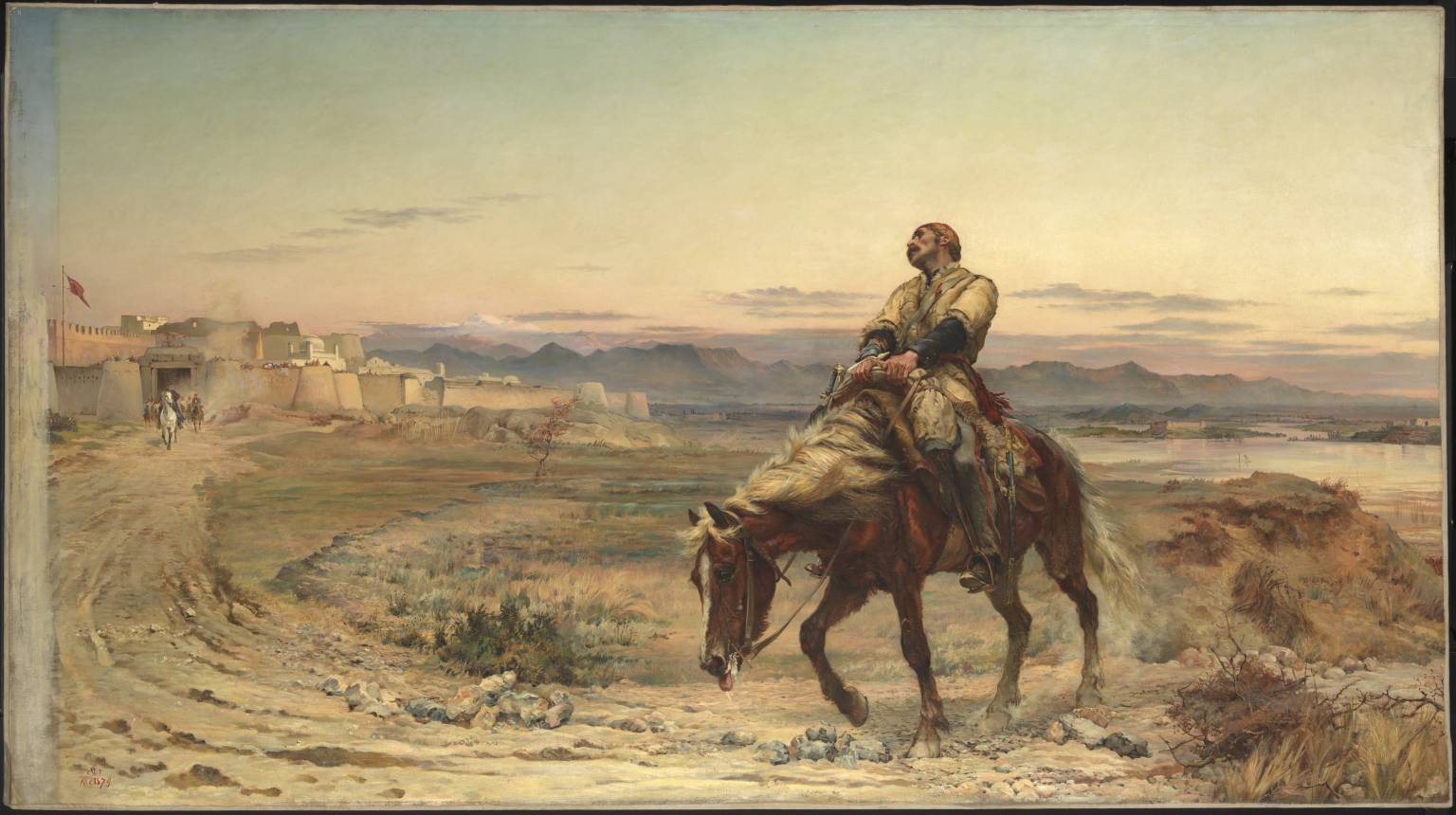book: travels into bokhara
“… in 1831 he was sent to Lahore with a present of horses from King William IV to Maharaja Ranjit Singh. The British claimed that the horses would not survive the overland journey, so they were allowed to transport the horses up the Indus and used the opportunity to secretly survey the river. In the following years, in company with Mohan Lal, his travels continued through Afhanistan across the Hindu Kush to Bukhara (in what is modern Uzbekistan) andPersia.
The narrative which he published on his visit to England in 1834 added immensely to contemporary knowledge of these countries, and was one of the most popular books of the time. The first edition earned the author £800, and his services were recognised not only by the Royal Geographical Society of London, but also by that of Paris. He was also elected a Fellow of the Royal Society the same year. London’s prestigious Athenaeum Club admitted him without ballot. Soon after his return to India in 1835 he was appointed to the court of Sindh to secure a treaty for the navigation of the Indus and in 1836 he undertook a political mission to Dost Mohammed Khan at Kabul.
his tragic death
“Sir Alexander Burnes was duly informed by his Afghan servants, the day previous to his murder, that there was a stir in the city, and that, if he remained in it, his life would be in danger.” Burnes, who had grown comfortable with his masterful command of the Persian language, ignored the admonitions. According to contemporary Afghan reports of what happened next, Burnes became an obvious target for reprisal, as he was “one of the most licentious” characters among the resident British – and this was deeply resented by the local population.
In the early morning of 2 November, disorder broke out in Kabul. By 3 AM, a hostile mob had formed outside Burnes’ house and set fire to the gates. Informed that Shah Sujah had sent a military escort, Burnes ran to the rooftop to look for them, but none were coming. Burnes and his escort fired at the mob around the building.
An Afghan spokesman for the mob swore on the Qur’an that if Burnes’ party ceased fire, he would lead them safely to a nearby fort occupied by Persian troops in Shah Sujah’s service. Burnes agreed, and disguised himself as Afghan to facilitate the arrangement. But only a few meters from the house, Burnes and his party, including his brother, fifteen sepoys, and several Hindu servants, were attacked by the mob and killed – most cut up by knives. Burnes’ Afghan servants and several others in native clothing escaped.
It is said the mob included husbands and fathers of the many Afghan women Burnes had reputedly slept with, and that it was very likely at their hands that he met his death.” from
Alexander Burnes. (2015, April 22). In Wikipedia, The Free Encyclopedia. Retrieved 16:29, May 1, 2015, from http://en.wikipedia.org/w/index.php?title=Alexander_Burnes&oldid=658158096


![Sir_Alexander_Burnes[1]](http://www.migueldelosandes.com/wp-content/uploads/2014/12/Sir_Alexander_Burnes1-225x300.jpg)